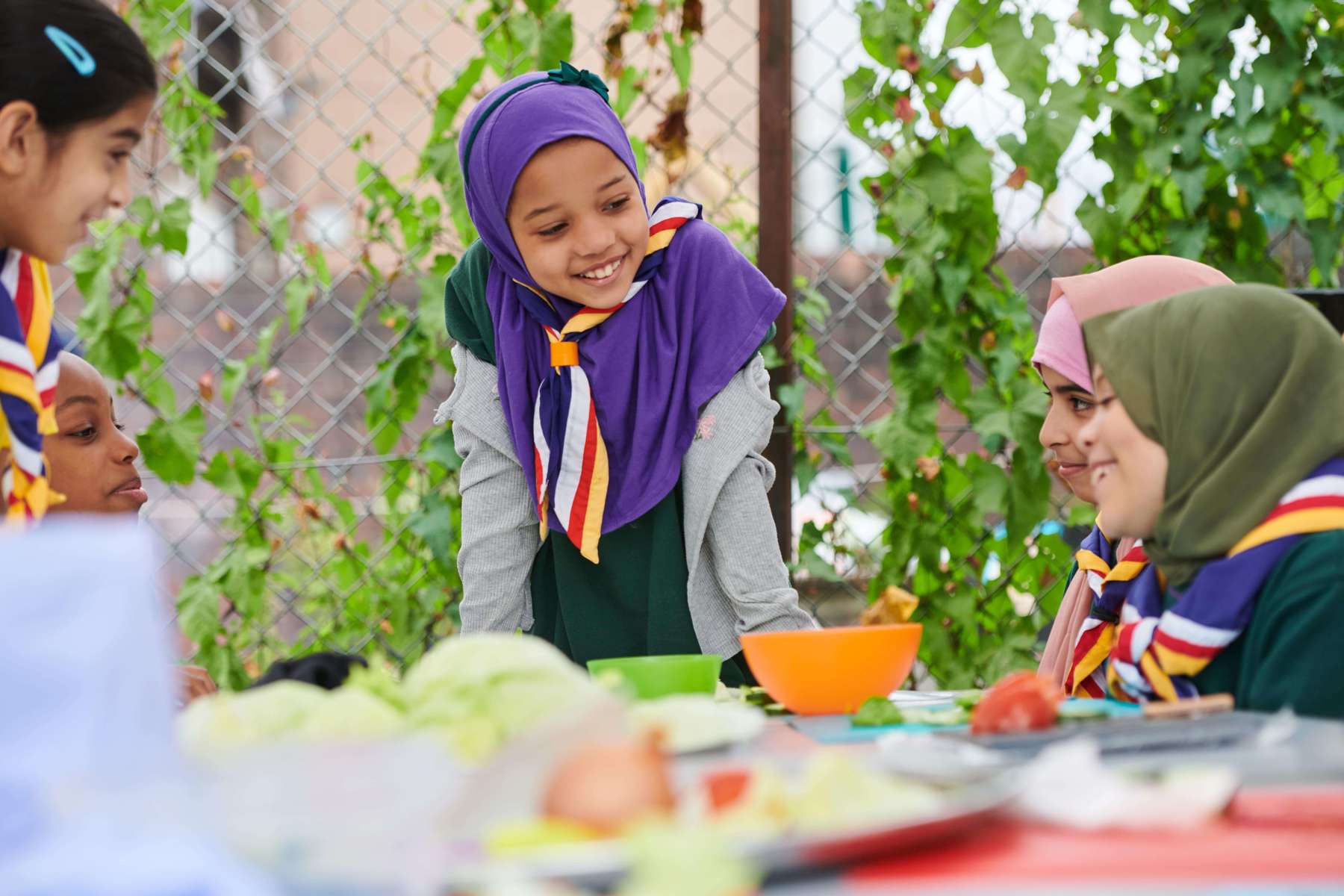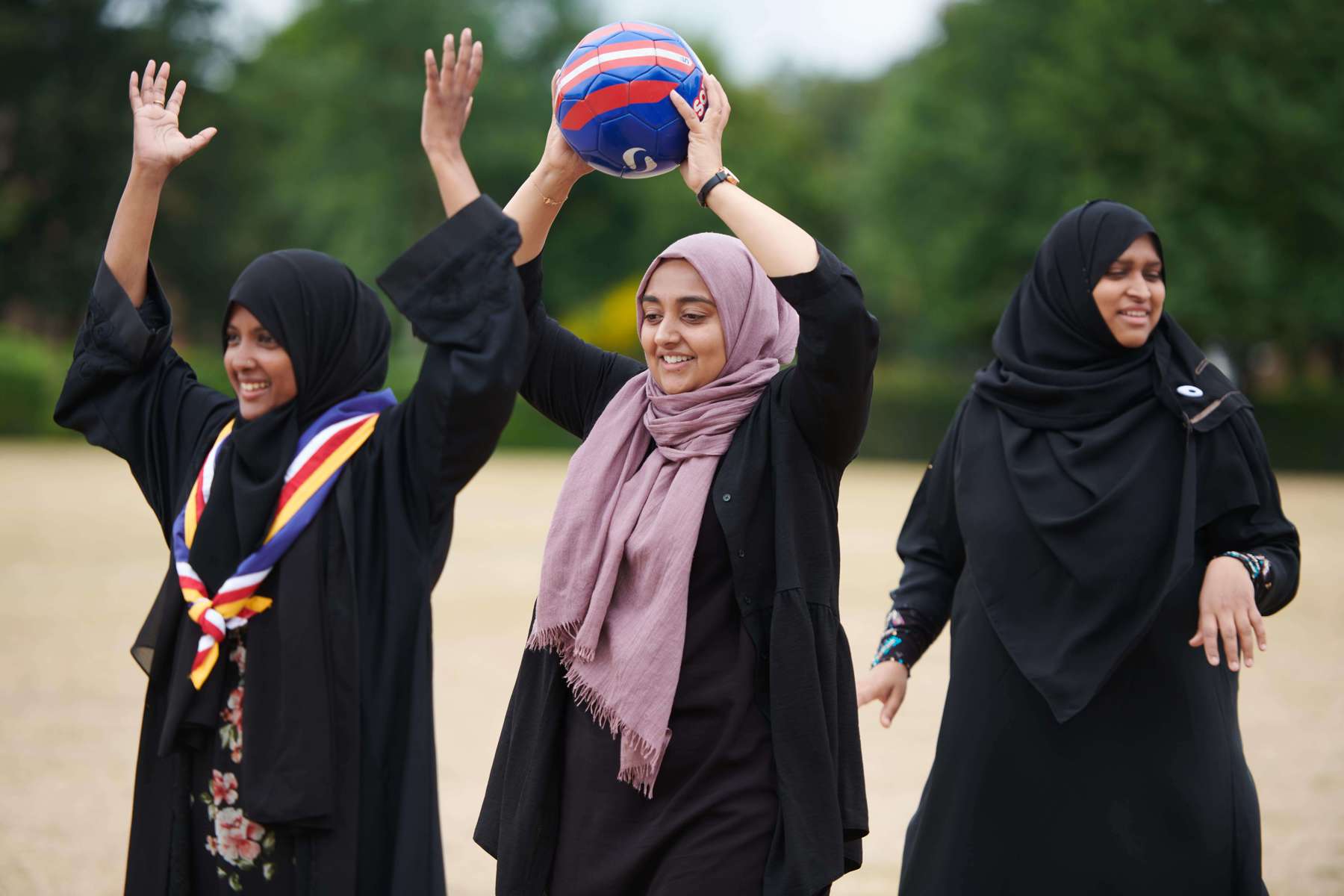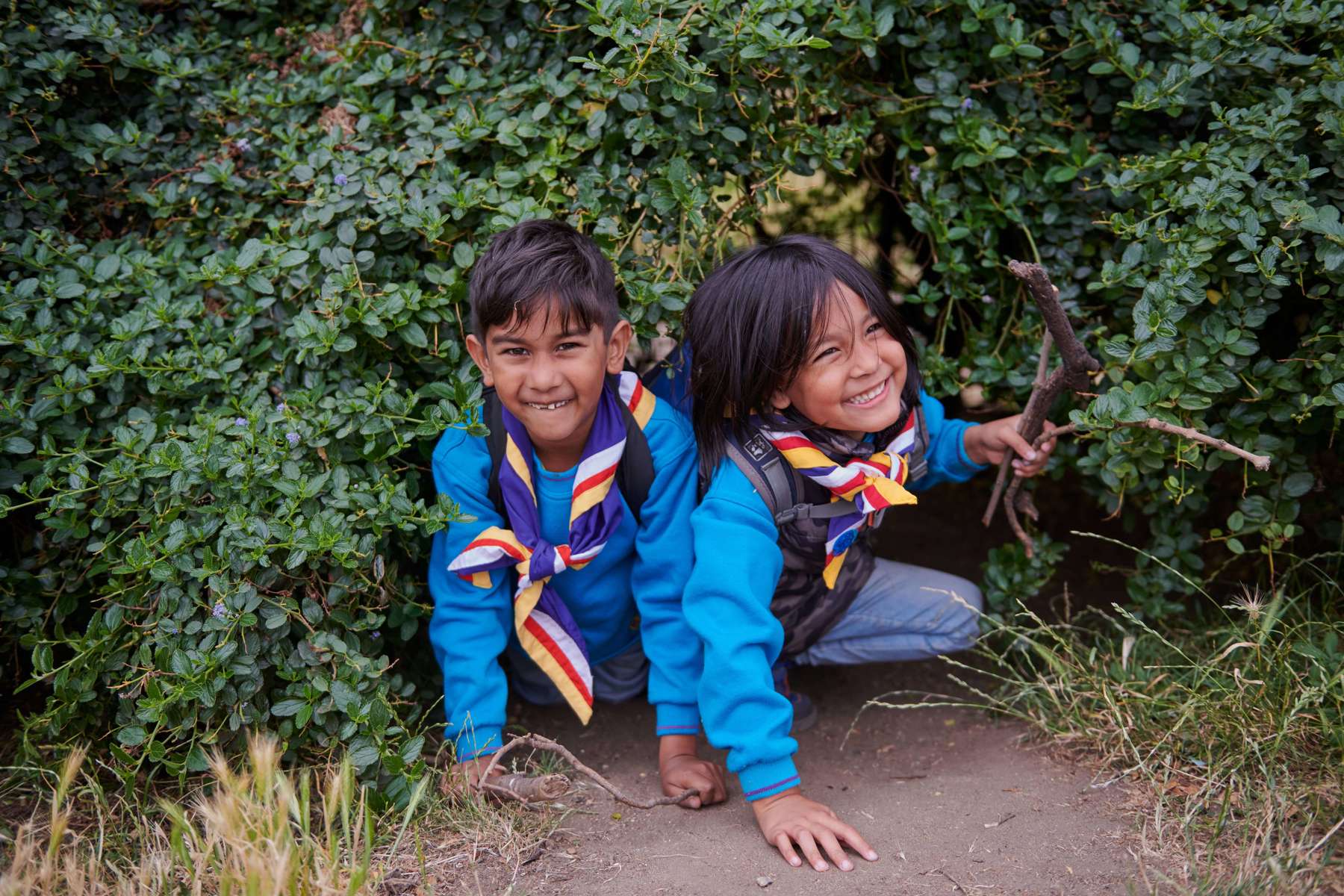Islamophobia Awareness Month: What is and how to talk about Islamophobia
November is Islamophobia Awareness Month. Islamophobia Awareness Month (IAM) is a campaign founded in 2012 by a group of Muslim organisations.
We caught up with the Muslim Scout Fellowship and Islamophobia Awareness Month campaign to find out more about what Islamophobia is, as well as how we can help young people to learn more about Islam through Scouts.
IAM aims to raise awareness of Islamophobia, challenge incorrect stereotypes, and break down barriers between Muslim and non-Muslim communities. It showcases the positive contributions of Muslims in the UK.
In Scouts, one of our Scout Active Support Units is the Muslim Scout Fellowship (MSF). It’s support unit for all Muslims who are part of Scouts. The MSF have promoted and supported Scouts in the wider Muslim community, creating 76 new predominantly Muslim groups. They’ve helped bring 4,808 new young people and adult members into UK Scouts. They’re the largest Muslim youth organisation, providing access to non-formal education for young people.

What Islamophobia is
IAM define Islamophobia as a type of racism that targets expressions of Muslimness or perceived Muslimness. They explain it as the exaggerated, irrational fear, hatred and hostility towards Islam and Muslims perpetuated by negative stereotypes resulting in bias, discrimination of Muslims from civic, social and political life.
What an Islamophobic attack looks like
Islamophobia can happen in variety of ways. IAM says that there’s the Islamophobia that people see, such as physical or verbal attacks. Some examples of this might be violence, verbal or physical threats, vandalism or purposeful damage to personal property, jokes and stereotypes, and harassment.
However, there’s also Islamophobia that people don’t see, such as discrimination, stereotypes, exclusion and marginalisation.
Some examples of this might be people crossing the road to avoid someone, treating Muslims differently to other people, or leaving people out. It can also be intimidation, inappropriate questions, online abuse and cyber bullying, and exclusion from events, such as not providing halal food, holding events during Muslim religious periods like Ramadan or Eid, or showing lack of willingness to include Muslim people in groups or events for any reason.
People can be targeted by Islamophobia even if they’re not Muslim. For example, Sikh people may experience Islamophobia because people may confuse the Sikh turban with Muslim headwear.

Why Islamophobia happens
Islamophobia can stem from a lack of understanding, a fear of difference, scapegoating, and from picking up myths from the media, friends and family.
The theme for Islamophobia Awareness Month 2022 is #tacklingdenial. The Islamophobia Awareness Month charity say that denial of Islamophobia can be seen in many forms in both political and social spaces and that tackling denial is important, because if you allow people to deny the very existence of Islamophobia, you can struggle to have a sensible conversation about it and therefore tackle this problem. Denial shuts down this conversation.
- Create a safe space for discussion: Make sure your Scout group’s a safe space for people to discuss thoughts, ideas and opinions. This helps to break down barriers and allows people to learn.
- Scouts is committed to inclusion: Scouts is an inclusive, values-based movement. Membership is open to all those who share our fundamental values. We’re committed to inclusion, and we welcome young people, volunteers, parents and carers of all faiths and from all backgrounds. This should be replicated in all sections, groups and Scout events.
- Tell everyone what Islamophobia is: Teach people what biases Muslims can face, so they can help to prevent and report it. You can visit the Islamophobia Awareness Month website and complete the form to become a supporter of the campaign.
- Encourage your young people to learn more about Islam: It’s important that Islamophobia, discrimination and anti-bullying is talked about with young people. Build it into your Scouts programme by having meetings to celebrate events throughout the year and learn about the faith through activities and badges.
- Reach out to the predominantly Muslim Scout groups in your area: You could become pen pals, have joint meetings and provide safe spaces for young people to learn. You could invite a speaker to come to your meeting to help educate everyone, answer questions and break down barriers that may exist.
- Observe and get to know your young people: Tune in to your observational and listening skills, so that you can pick up on any subtle signs of bullying or Getting to know your young people well will help you to look out for any early changes in behaviour that may lead to displays of Islamophobia.
- Teach young people that skin colour and race is different to religion: Asian people who aren’t Muslim have experienced Islamophobia, as people have assumed they’re Muslim because of the colour of their skin. Muslim people are very diverse in what race they might be, as well as their physical appearance, such as skin colour, what they might wear and so on.
- Educate yourself: Do your own research and learning before teaching others and running sessions. This’ll help to improve your own and other’s understanding of Islam and different faiths, so you can be in a better position to lead sessions. It may include reading books, going on a training course, getting in touch with the Muslim Scout Fellowship or learning the correct pronunciations and terminology. You could also take part in Islamophobia Awareness Training session or hire the Islamophobia Exhibition by emailing Islamophobia Awareness Month at info@islamophobia-awareness.org.
- Teaching respect when talking about Islam: Young people should be free to ask questions, discover and learn about faiths in Scouts. However, it should be done respectfully. You should help to teach volunteers and young people to not ask invasive or inappropriate questions. For example, commenting on weight loss during fasting isn’t appropriate, but asking in a respectful way why people fast, or wear Muslim clothing, such as head scarves, can be a great opportunity for learning and open conversations.
- Make Muslim young people or volunteers comfortable: Avoid singling out people and putting them on the spot to talk about personal beliefs, cultural practices or experiences. This may make them uncomfortable, and they should only share what they know if they feel comfortable doing so. Just because someone is part of a community, it doesn’t mean they speak for, or represent, everyone else in that community.
- Discuss Islamophobia at wider areas meetings: Make sure tackling Islamophobia and having robust and efficient process anti-bullying reporting policies and procedures is on agendas for section, group and wider area meetings. Everyone should know what to do. Volunteer meetings are great to discuss any worries that adults might have, too.
- Have a Code of Conduct, Anti-Bullying policy and zero-tolerance approach: Make sure all members, including new ones, are aware of your zero-tolerance stance on bullying, including Islamophobia. As a section or group, you should create a Code of Conduct, Anti-Bullying Code and Discipline policy or procedure. You could involve young people when making these, too.
- Let everyone know how to make a report: Everyone should know how to make a report of bullying and what will happen next. Your methods for reporting bullying and Discipline policy or procedure you’ll take could be included in any email signatures, welcome packs for volunteers and young people, on your social media pages or on a poster at the meeting place. You may also want to include your whistleblowing procedure or the contact for a Group Scout Leader, in case the bullying involves an adult volunteer.
- Act quickly when Islamophobia is reported: If you’re concerned about any bullying in your section, you need to act quickly and sensitively, which may include telling the parents and carers involved, speaking to the affected young people involved, offering them support and a chance to share their feelings and needs. Follow your discipline policy or procedure as you would other such incidents. You must intervene, monitor and record any bullying situations, and you’ll need to inform your Group Scout Leader.
- Keep talking all year round: Make sure that learning about Islam, along with other faiths and cultures, is on your programme all year round. Learning about Islam isn’t limited to Islamophobia Awareness Month or specific events, such as Eid. It’s the continuous learning and breaking down of barriers that helps to increase education and reduce hate crimes or bullying. Celebrating people of Muslim faith is just as important in breaking down the barriers and stigma many Muslims face.
Try Interacting with different communities by visiting different places of worship, or learn about religious festivals in our game Party planning pandemonium.
You could explore how a member of a world religion puts their faith into action in Faith feathers, or discover the art and traditions of henna in Henna hands.
People worship in different ways and in different places. You could learn about how and why with Sacred sites, or play a guessing game with a faith-focused twist in Where am I.
Learn about Ramadan and celebrate Iftar in Iftar under the stars, or choose to celebrate Eid al-Fitr by learning about Islam and making an Eid lantern.
Use your fingers to create reflections (or prayers), then Link up to make a paper chain, or go on your own Place of worship pilgrimage to visit a local place of worship or sacred site.
Finally, find out what influences what people do with their money? Explore how someone’s religion might play a part in Zakat, then bake some tasty treats with Brilliant baklava.
Learn about affinity bias in The tag game, or try working together in Equity spaghetti and explore how it feels to be on the receiving end of differential treatment.
- Check calendars when planning events and activities: Be mindful when planning camps and sleepovers to try to avoid Ramadan or other faith events.
- Talk about and share your zero-tolerance anti bullying stance: Display posters and share information with volunteers and parents and carers to help educate, offer advice and share your zero-tolerance stance against Islamophobia. You should include a zero-tolerance policy on faith-based hate crimes and bullying in your group’s code of conduct or rules. You could share this on posters at your meeting place and with your parents/carers, too.
- Be mindful of activities during fasting: Be conscious and flexible for people volunteering during Ramadan. When planning your programme, be aware of how active activities may be for people who’re fasting – is there another task they could have the option of doing? Or is there a relaxed activity, such as a craft, also on offer for people to do?
- Have prayer spaces set up: Have prayer rooms or private spaces available at your event, camp, sleepover or meeting space.
- Create inclusive social events for volunteers: Be inclusive of when and where volunteer social events are held, especially around alcohol, so everyone feels comfortable attending.
- Cater for all diets on camps, at meetings or at sleepovers: Make sure halal food, or food for any dietary requirements or allergies, is clearly marked and catered for. Check caterers know how to handle it confidently, too.
- Have Muslim role models and support local Muslim community heroes: Where relevant, see how Muslim role models can be included in any activities you do. You should also make sure to include a diverse range of role models for all activities, including age, gender, ethnicity and disability.
- Be conscious of the news and the impact it can have: Be sensitive to the impact that ‘trigger events,’ such as terror attacks, may have on volunteers, parents and carers, and young people, as this can create an increase in Islamophobic attacks.
- Help report incidents, but let people have a choice: Make sure victims of Islamophobia or anti-Muslim hatred have a choice over whether and how they pursue incidents – whether this is informally, or through official Scouts and police reporting or complaints channels.
- Representation in books and games: If you have a book or game selection, make sure these are inclusive as possible in stories, characters and author representations. If you run a one-off or more sporadic storytelling session or event, check these are inclusive, too.
- Making Scout events for everyone: If you have an event or hold a local fair, make sure there are options for halal foods, as well as food for any dietary requirements or allergies. You should invite Muslim store-holders, so there are products inclusive for everyone. You can make sure to include a diverse range of products and stallholders, including age, gender, ethnicity and disability.
- Help to educate through the Scouts programme: Include our faith-based activities and badges in your programme to help everyone learn about different communities.
- Have learning opportunities in free time: Help people learn during free or extra time in sessions or on camp. You could offer worksheets, crafts, books or games that help teach young people about Islam or different faiths.
- Represent all skin tones: Create an inclusive first aid box and have plasters for all skin tone, and make sure any paper, colouring pencils or felt tips are representative of all skin tones, too. However, remember, Muslim people can have any skin colour. Asian people who aren’t Muslim have experienced Islamophobia as people have assumed that they’re Muslim because of the colour of their skin.
- Reach out: Keep reaching out to everyone in your community. It may be to ask for a speaker, getting in touch with a predominantly Muslim Scout group, or finding new young people and volunteers to join.
